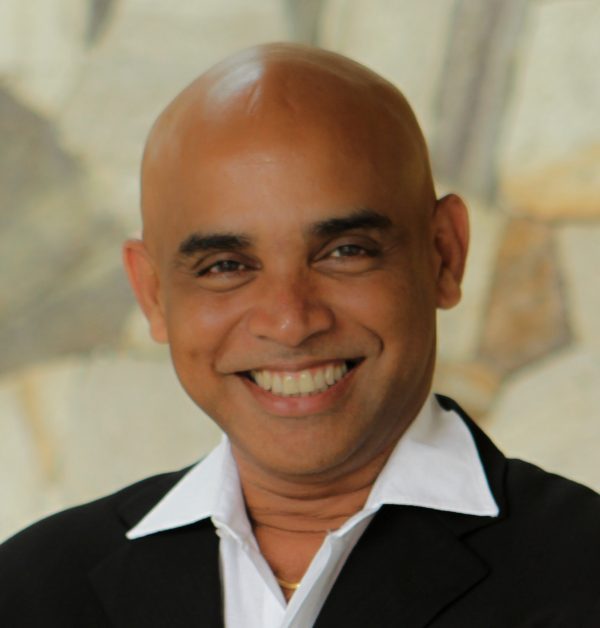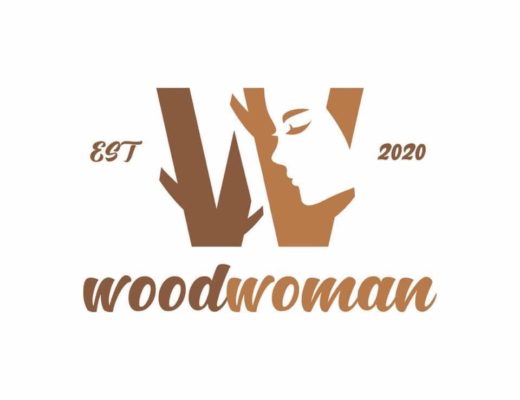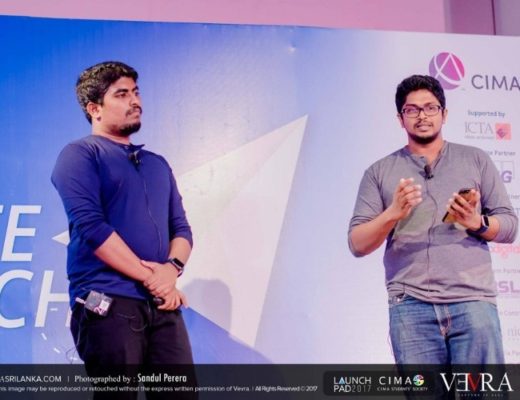If you have ever worked in a company, I’m sure you have attended to at least one or two training programs. But did you ever wonder how someone can create a successful training company in Sri Lanka? Rukmal De Silva, CEO of 361 Degrees has the answer.
361 Degrees is no stranger to corporate Sri Lanka. They are one of the largest training service providers in the country and they offer services from team building, leadership development, employee engagement, outbound training, strategy and much more.
But this post isn’t about what they do. This post is about the journey of 361 Degrees and how Ruki De Silva created a company that defied the convention.
This is the behind story of 361 Degrees.
How did everything start?
Let’s go to the very beginning. After finishing my school, I did a string of jobs from interning at IBM to selling credit cards for Golden Key. Even though I got selected for the University of Moratuwa, I didn’t want to stay stuck in the university for 3 years. Instead of university, I decided to become a marketer. In 1994, I worked at Lanka Internet and that got me into IT. They were the first internet service providers in Sri Lanka.
In 1995 I started Sri Lanka’s first ever web development company. I didn’t know anything about web development but I knew what the web could do. I went and sold the first website to Maharaja Group. That’s how I started my career as an entrepreneur. I got some university students to develop websites and we built websites for John Keells, Hayleys, Aitken Spence and even the BOI. At the same time, I got into IT consultancy and started working as a consultant. I worked for the World Bank in South Africa, Mozambique, Lao, and Jordan.
While I was making good money as a consultant, my web development business was failing. I lost focus, I lost direction and I lost control. I lacked enough perspective on scaling a business.
When did you decide to get into the world of training?
In 2001, I went for a training program in Japan which questioned my purpose. As an IT consultant, the only thing I was enjoying was traveling. There was a devastating amount of bitterness and unhappiness in my heart. By the time I was 34, I decided that it’s time to change.
Did you know anything about training when you started?
By then I had done a course in Junior Chamber International about training. When I did that, I had no intention of becoming a trainer. But it helped me.
In 2001 I started conducting training programs. After some time, I was relatively established in the industry as a trainer. But until 2007, I was solely running the business. It was all about what Ruki can deliver. This became a problem. I got involved in every situation and I didn’t delegate. Until then I was playing by the rules of the industry.
99% of the training industry in Sri Lanka is dominated predominantly by individual trainers. I was depending highly on my capability and deliverability in the industry. Then I became 40. I have always wanted to retire early and work only 3 days a week. That wasn’t happening and I decided that things have to change.
One of the fears every individual trainer has is if “I bring in somebody, they would screw me and take my market.” I was also feeling that. But I decided to change the industry norms. I decided to build a brand that does not depend on my name.

What’s the story behind 361 Degrees?
Before 361 Degrees, we were known as Unleash Talent and Wild Drift. We were mostly perceived as an outdoor training company. But that didn’t bring out the perception that we are a fully-fledged consultancy company. So we decided to rebrand as 361 Degrees. It took us about 4 years to make that decision because we thought that we will lose market share. But it paid off.
How is 361 Degrees different?
We are different mainly from 3 aspects.
First, from a customer’s perspective, we are the only company that could deliver solutions ranging from classroom type to coaching to outbound training and large scale programs.
We are fresh. We believe in impact and reliability. Those are our 3 brand promises.
Secondly we are different from how we operate. We broke the industry standards. We brought in youngsters and gave them everything that we know. We have a great trainer development program. We have a pipeline of trainers who are getting groomed.
Thirdly we practice everything we preach within our own company. If you ask us whether we have delegated, yes we have. If you ask us whether we have innovated, yes we have. That’s the promise we offer our clients.
If someone wants to become a trainer, what would you recommend?
Number one thing you need is to be passionate about making an impact. Money is going to be a byproduct. If you don’t have the heart and balls for it, don’t get into training business.
Then you need to learn the art and science of training people. You need to be able to speak to the heart; not just to the mind.
Recently I see a great influx of speakers becoming trainers in Sri Lanka. A speaker does not necessarily become a trainer.
What sort of things do you look for when you are hiring employees or trainers?
There are 3 things in my hiring criteria.
- Is this person driven by passion?
- Can this person learn?
- Can this person stand up to whatever they believe in?
What does it really take to build a great company?
How do you transfer your strategy into a very meaningful and actionable plan? That’s the key to building a great company. I believe that you should be able to have your strategy on an A4. If not, you don’t have a strategy. I don’t believe in five-year plans. I focus on the next 18 months.
There are a couple of things to consider.
You need to be clear about the choices you make and they have to be communicated to your people clearly. You need to get in the buy-in of everybody who is working for you.
You also need to create a culture that does not depend on individual employees. People can come and go but the organization needs to function smoothly.
You also need to have an uncanny ability to have those hard conversations. Most companies fail because they can’t sit and discuss problems. They are not allowing juniors to talk about the realities. You should know where you are. Otherwise, how can you move forward?
Imagine you’re hired by an organization and they want you to take them to the next level? What’s your approach like?
The first thing I would do is bring in the core team and help them to realize and accept the reality. We use unlearning techniques to give them a hard hit on the head and say “OK, look guys. Get off your egoistic pedestal and see where you are”. That’s the first step we do to bring people into the same page. And then we articulate change.
Then we bring in couple of key indicators to drive change. Otherwise, changes can be confused with your growth and other strategies. We need to cut the sh*t out and get one or two indicators to show that change is happening.
What advice do you have for someone who’s planning to become an entrepreneur in Sri Lanka?
It’s not about starting a business. It’s about solving a problem.
You need to see if you’re willing to solve it even if you’re not getting paid. That’s the passion test. You need to be in it with your heart or else, forget it.
What are some of your favorite failures and mistakes?
One example from my web development business was I focused more on loyalty rather than performance. I didn’t have enough perspective to scale the business.
Talking about the current business, I should have started scaling way earlier rather than keeping everything to myself.
What are some of your favorite apps that you can’t live without?
Without a doubt it’s Flipboard. I use it every day for about 30 minutes as soon as I wake up. That’s how I get my daily dose of insights.
What are your habits, routines and hobbies?
I believe in a holistic life. I eat properly and I try to work out often. I don’t watch TV. I sit with my family and we have dinner together. We eat at 6:30 p.m. and kids go to bed by 7:15 p.m.
Our lives are not restricted just because I’m running a business. My wife and I go out twice every week. I have not been sucked into the entrepreneurial or parental life.
And as for my hobbies, I do some serious photography. I consider myself a professional “hobby” photographer. I do this purely for happiness.
Favorite authors?
Wilbur Smith and John Grisham are two writers that I love.
What advice do you have for a Sri Lankan graduate who’s entering into the real world?
Get out of university ASAP. A degree is only a benchmark that a person can do some disciplined work. In most of the degrees (not the ones that are very specific like chemistry) the validity of that knowledge is just 5 years. After 5 years, you are not going to use any of the things you learned. It will only take you to a certain level.
If I can give just one advice, that has to be the skill of decision making. I cannot emphasize more on this. For an example, if I ask what do you want to eat? Don’t tell me “I’ll eat anything.” Learn to make decisions.


